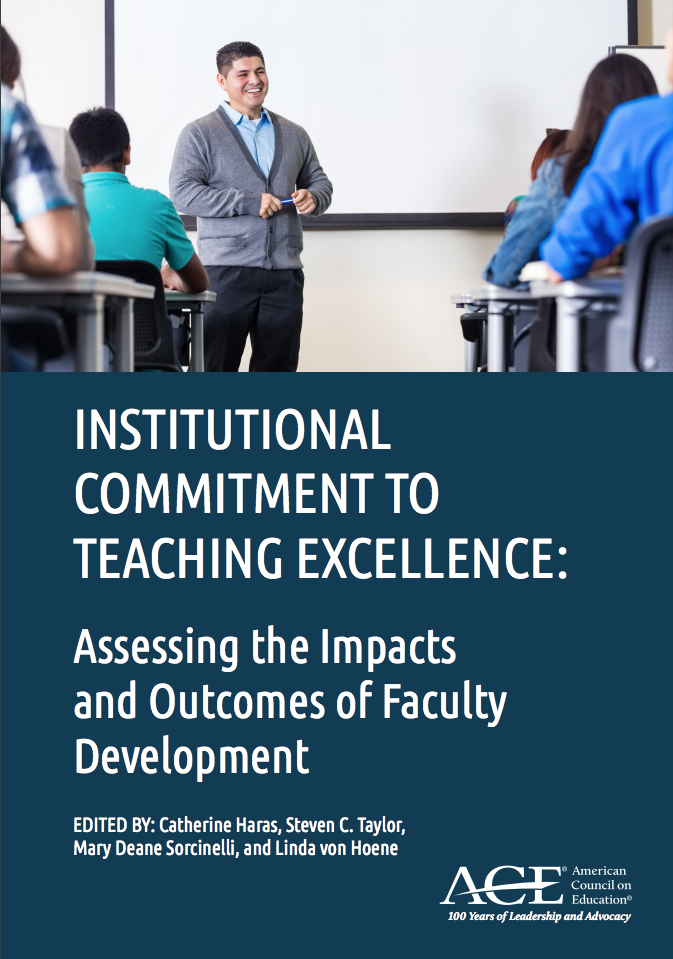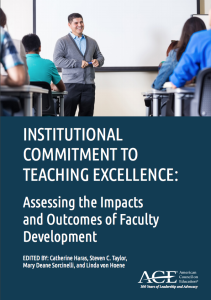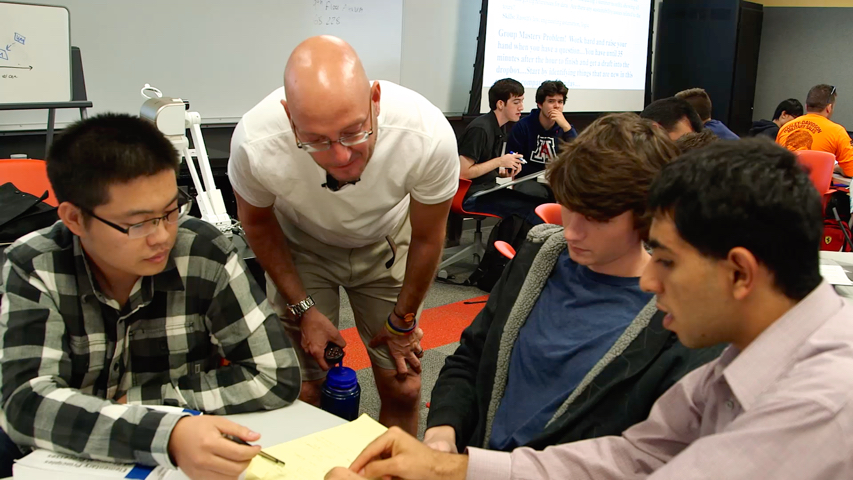
Measuring the Impact of Faculty Development on Student Achievement
 The best way to advance and recognize the rightful place of faculty in student success efforts is to invest in and demonstrate the impact of evidence-based instruction on student achievement. So argues the American Council on Education (ACE), with whom ACUE collaborates, in a new white paper released this week. The report explores the benefits of institutions making a commitment to high-quality teaching, including improved retention rates, persistence, and success among students. Institutional Commitment to Teaching Excellence: Assessing the Impacts and Outcomes of Faculty Development also responds to a question critical to practitioners in our field: How can faculty developers and teaching center directors demonstrate the measurable impact of their work and play a central role in student success efforts?
The best way to advance and recognize the rightful place of faculty in student success efforts is to invest in and demonstrate the impact of evidence-based instruction on student achievement. So argues the American Council on Education (ACE), with whom ACUE collaborates, in a new white paper released this week. The report explores the benefits of institutions making a commitment to high-quality teaching, including improved retention rates, persistence, and success among students. Institutional Commitment to Teaching Excellence: Assessing the Impacts and Outcomes of Faculty Development also responds to a question critical to practitioners in our field: How can faculty developers and teaching center directors demonstrate the measurable impact of their work and play a central role in student success efforts?
“High-quality instruction has been the backbone of an American higher education system that remains the envy of the world,” says Molly Corbett Broad, ACE president emerita, in the paper. “But how to measure effective teaching and gauge its impact on an ever more diverse population of students is vital if we are to dramatically increase the number of Americans able to earn a college degree.”
Commissioned by ACE as part of its collaboration with the Strada Education Network to assess the connections between quality teaching and student success, the paper is authored by a number of respected scholars in teaching and learning and features exemplars of institutions committed to evidence-based instruction.
- Catherine Haras reports on work at California State University, Los Angeles (an ACUE partner), which she directs through their Center for Effective Teaching and Learning.
- Linda Nilson, who is featured in ACUE’s Course in Effective Teaching Practices, coauthors a chapter on the intended teaching effectiveness outcomes for instructors and faculty development.
- Rutgers University-Newark, another ACUE partner, is presented as a model for making teaching excellence a critical lever of its strategic plan. RU-N is credentialing nearly three quarters of its educators in evidence-based teaching practices as part of a comprehensive effort to increase graduation rates.
Adrianna Kezar, a professor of education at the University of Southern California, codirector of the Pullias Center for Higher Education, and director of the Delphi Project on the Changing Faculty and Student Success, praised the report, noting, “Most student success initiatives have focused on efforts outside of the classroom, such as advising and mentoring. While these are important, study after study demonstrates that students’ experiences in the classroom and with faculty are one of the most important factors in student outcomes ranging from persistence, graduation, sense of belonging, and academic self-efficacy to other important psychosocial outcomes associated with learning and graduation. . . . This publication provides a compelling articulation of the standards and activities faculty developers should engage with to enhance the teaching and learning environment on campus.”


